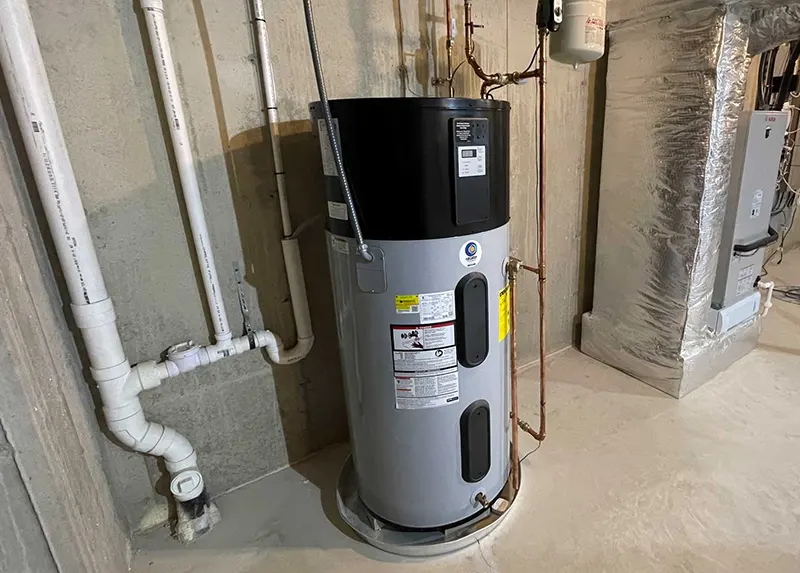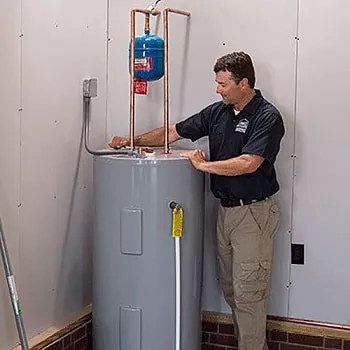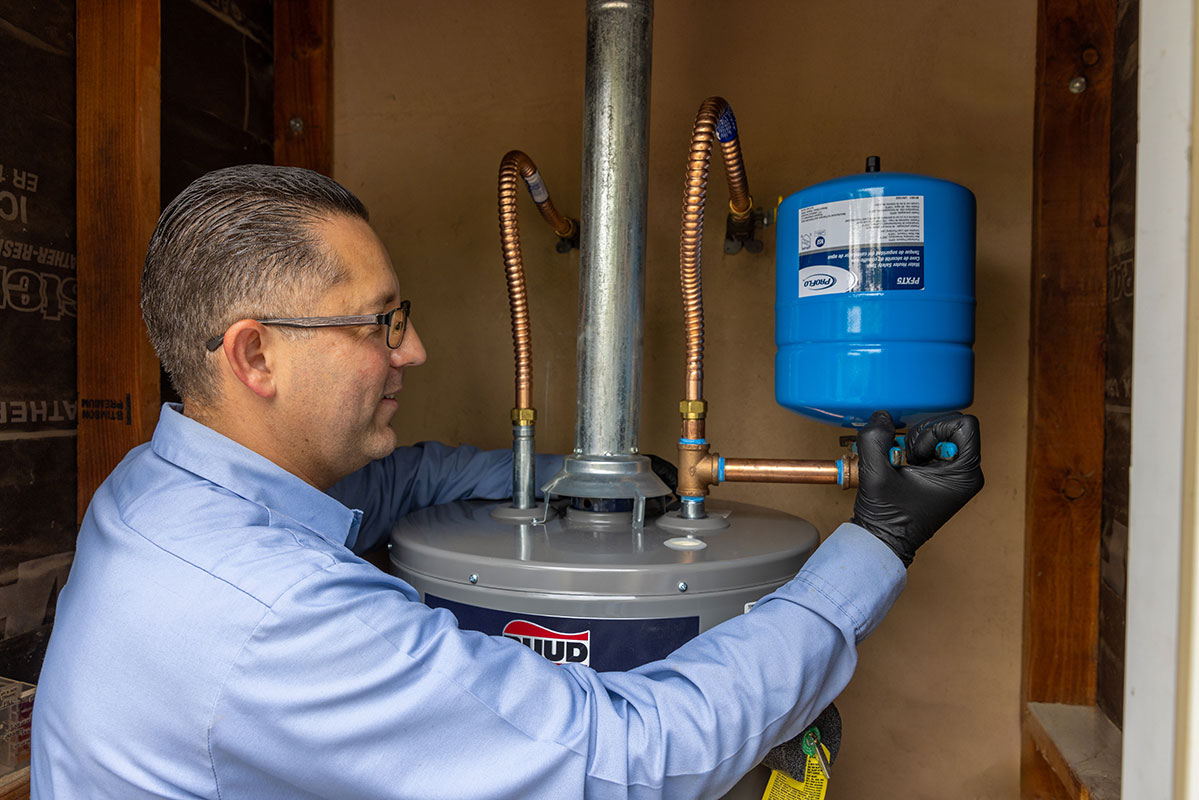Comprehensive Drain Cleaning Services to Ensure Healthy Plumbing
Total Overview to Water HeaterInstallation and Replacement
Recognizing the ins and outs of hot water heater installation and substitute is crucial for property owners looking for to ensure performance and reliability in their hot water supply. From picking the appropriate type and size to carrying out a smooth installation process, several elements have to be considered to avoid typical risks. This overview will certainly offer you with the essential steps and insights to browse the intricacies of this home improvement task, while also highlighting essential maintenance methods that can prolong the life of your system. As you check out these facets, you may locate yourself reassessing your present setup and determining areas for renovation.
Types of Water Heating Units
When thinking about water heater installment and replacement, it is vital to recognize the different sorts of hot water heater readily available out there. The most usual kinds include container hot water heater, tankless hot water heater, heatpump hot water heater, and solar water heating units.
Storage tank water heating systems are conventional systems that save a specific quantity of warm water, making them readily available when required. In comparison, tankless water heating units give hot water on need, removing the demand for storage.
Heatpump water heaters make use of electricity to transfer warm from the air or ground to warmth water, offering considerable energy financial savings yet requiring more space and particular setup problems. Lastly, solar water heating systems harness solar power to heat water, giving a green choice with potential lasting cost savings, although they usually require a backup system for cloudy days.
Understanding these alternatives makes certain educated choices pertaining to setup and substitute, accommodating particular needs and choices.
Selecting the Right Size
Picking the proper size for a hot water heater is crucial to make sure optimum performance and effectiveness. A device that is also small will certainly have a hard time to meet family demands, bring about irregular hot water availability and enhanced power usage. On the other hand, an oversized hot water heater can cause unneeded energy waste and higher utility costs.
To establish the appropriate dimension, think about the family's peak warm water use. This can be determined based upon the number of passengers and their typical warm water demands. A household of 4 might require a water heater with a capability of 50 to 80 gallons, depending on the usage patterns, such as simultaneous showers and washing.
Additionally, evaluate the recuperation price, which measures exactly how quickly a heater can renew warm water after it has actually been used. For tankless models, concentrate on the circulation price, gauged in gallons per minute (GPM), to ensure it satisfies the family's synchronised need.

Installment Process Review

Next, the old device should be detached and removed, making sure to follow neighborhood codes and laws relating to disposal. Once the old device is out, the new water heating system can be positioned in position. This step entails linking the supply of water lines, ensuring that all installations are leak-free and safe and secure.
After establishing water links, it's necessary to link the power supply, whether electric or gas, following the producer's directions diligently. Once all links are made, the system should be full of water, and the power can be transformed back on. Finally, it is necessary to look for leaks and make certain the hot water heater is working appropriately before completing the installment process.
Usual Installment Mistakes

Another constant blunder is disregarding to comply with regional codes and regulations. Stopping working to comply with these requirements can not just result in safety and security dangers but may also cause expensive penalties or the requirement for pricey reinstallation. Furthermore, incorrect airing vent is a vital concern. Inadequate ventilation can create unsafe gas buildup, presenting significant health risks.
Wrong plumbing connections are also a prevalent blunder. Falling short to safeguard links or making use of the incorrect image source kind of installations can lead to leaks and water damage. Forgeting the value of an appropriate drain pan can result in significant water damages if leakages do happen. Lastly, inadequate insulation of pipelines can bring about warmth loss, minimizing effectiveness. By preventing these common setup errors, home owners can ensure their hot water heater operates securely and successfully, making best use of efficiency and long life.
Upkeep Tips for Durability
Proper maintenance of a hot water heater is important for its long life and ideal performance. Regular evaluations and servicing see it here can prevent pricey repair work and expand the home appliance's life expectancy. Begin by checking the temperature level setting; it needs to generally be established between 120 ° F and 140 ° F for ideal energy performance and safety.
Every six months, flush the container to remove sediment buildup, which can harm home heating performance and cause corrosion. To do this, shut off the heating unit, attach a pipe to the drainpipe valve, and let the water run up until it is clear.
When they are corroded,Anode poles ought to be evaluated each year and replaced. These rods help avoid storage tank deterioration by attracting destructive aspects in the water.
Furthermore, inspect the pressure safety valve frequently to guarantee it is working appropriately. This valve is essential for stopping too much pressure buildup within the tank.
Last but not least, think about setting up a specialist upkeep check every couple of years for detailed assessments and servicing. By adhering to these maintenance pointers, homeowners can substantially boost the effectiveness, security, and lifespan of their water heating units, making sure trusted warm water for several years to come.
Conclusion
In final thought, proper installation and upkeep of water heating units are important for ensuring effectiveness and longevity. By comprehending these vital facets, home owners can accomplish a trustworthy warm water supply while decreasing possible concerns related to water heating unit operation.
Comprehending the intricacies of water heater installation and substitute is vital for house owners looking for to guarantee performance and dependability in their hot water supply.Tank water heaters are traditional systems that store a particular volume of hot water, making them readily available when needed. In comparison, tankless water heaters offer warm water on demand, eliminating the need for storage space. Selecting a water heating unit that is either as well tiny or as well large can lead to ineffectiveness, resulting in inadequate hot water supply or extreme energy usage.
By comprehending these essential facets, property owners can attain a trusted hot water supply while decreasing potential concerns associated to water heating system operation. pipe repair.